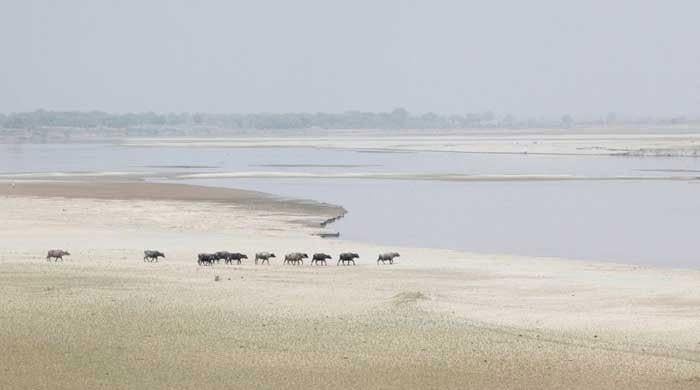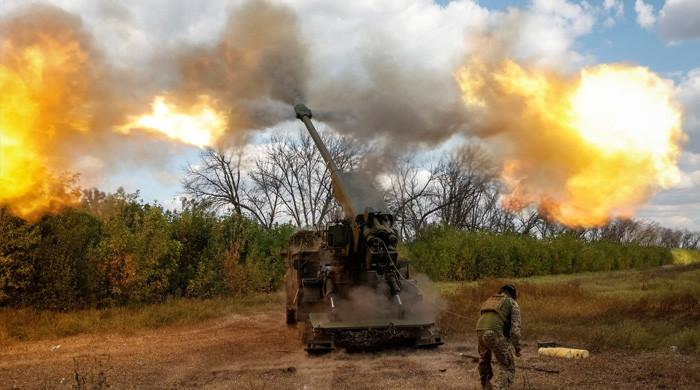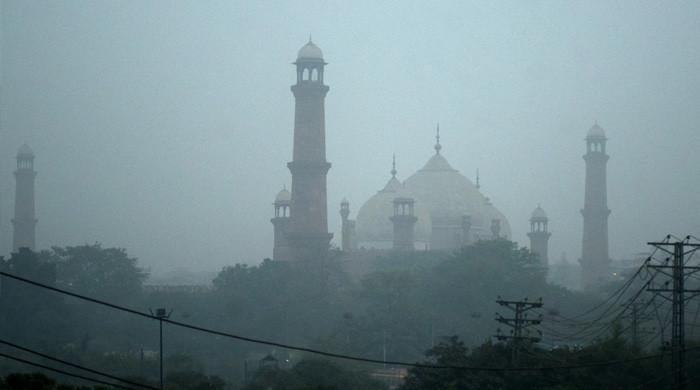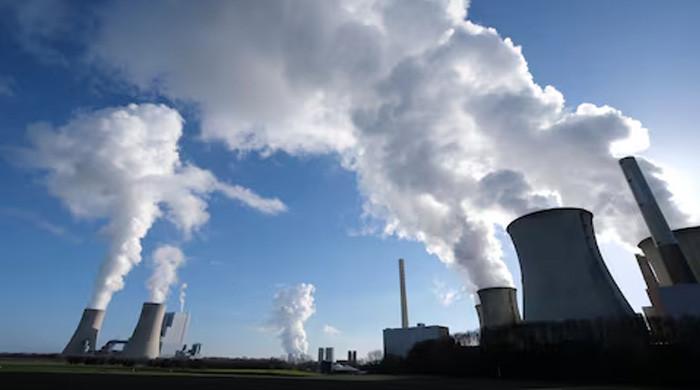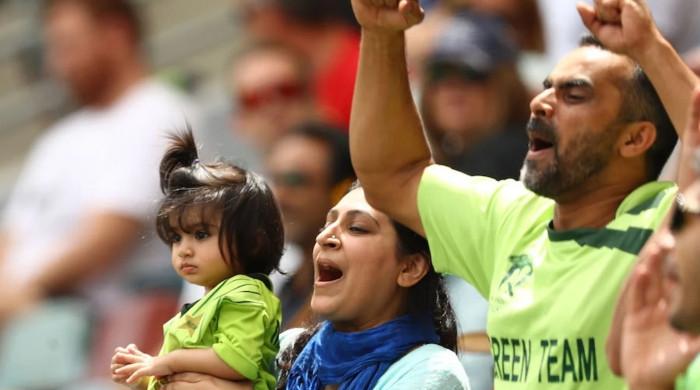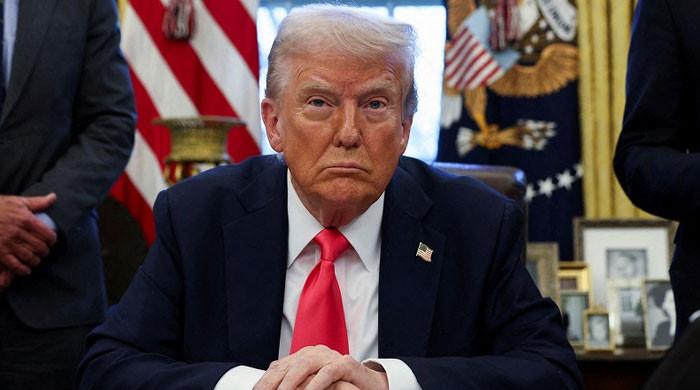Climate change and gender
Climate change is deepening existing inequalities [....] Women are 14 times more likely to die than men in disasters
February 16, 2025
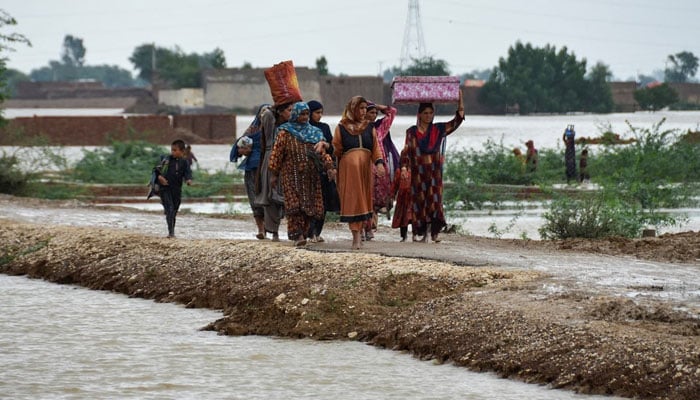
When Pakistan was hit by record-breaking floods in 2022, a third of the country went underwater. Entire villages disappeared overnight, millions of people were left homeless, and families who had lived on the same land for generations were suddenly climate refugees. But behind the statistics are real people — women like Razia, a mother of four from rural Sindh.
Razia and her family depended on their small farm for survival. She knew the land, the rhythm of the seasons, the scent of fertile earth after the rains. But then, the rains became unpredictable. Some years, there was too much water, flooding her fields and washing away everything she had built. Other years, there was none at all, leaving the soil cracked and lifeless.
When the floods came in 2022, Razia lost everything — her home, her crops, her security. Her family found shelter in an overcrowded relief camp, where she faced an entirely new set of dangers: hunger, disease, and the ever-present threat of violence. She spent her nights awake, keeping watch over her daughters, fearing for their safety.
This is the reality of climate change. It is not just about melting glaciers and rising temperatures. It is about the mother who skips meals so her children can eat. The girl who drops out of school because fetching water takes up her entire day. The woman who loses her home and finds herself at the mercy of a world that was not built to protect her.
And here is the greatest injustice of all: women like Razia are not responsible for this crisis. They do not run the industries that pollute the air or make the policies that determine the fate of our planet. Yet they are paying the highest price.
Climate change is deepening existing inequalities. Women make up 70% of the world's poor. They produce 50–80% of the world's food, yet own less than 20% of the world’s land. When disasters strike, they are 14 times more likely to die than men, often because they lack access to early warnings, cannot swim, or are responsible for children and elderly family members.
For those who do survive, the challenges only grow. 80% of people displaced by climate disasters are women and children. As climate change forces more people from their homes, women are left vulnerable to increased rates of trafficking, sexual violence, and forced marriage.
After the 2010 earthquake in Haiti, cases of rape and sexual assault in displacement camps rose dramatically. Following the 2004 tsunami in Indonesia, traffickers targeted orphaned girls, selling them into forced labour.
And yet, despite these enormous risks, the world continues to overlook women when shaping climate solutions. Women are the backbone of agriculture, responsible for feeding their families and communities, yet they receive less than 10% of agricultural assistance.
Women in climate-vulnerable regions are also less likely to own land or have financial resources to recover from disasters. Without land ownership, they often lack access to credit, farming support, and compensation when climate change destroys their livelihoods.
But here is what we so often get wrong: women are not just victims of climate change. They are also our best hope for survival.
Around the world, women are leading the fight for sustainability, often with little recognition or support.
In Chitral, Pakistan, women are creating climate-resilient businesses through eco-friendly handicrafts, helping their families survive glacial melting and flooding. In Bangladesh, women are building floating farms, ensuring that even when the land is submerged, their families will never go hungry. In Rwanda, women-run cooperatives are restoring forests, reversing years of environmental destruction.
And the data backs this up: when women lead, climate action is stronger. A study of 130 countries found that nations with higher female representation in government pass more ambitious environmental policies. Another analysis shows that businesses with more women in leadership are more likely to adopt sustainable and environmentally friendly practices.
Despite this, women are vastly underrepresented in climate decision-making — whether in government, policymaking or corporate leadership.
This is not just unfair but dangerous. If we are serious about fighting climate change, we must put women at the centre of climate solutions. We must ensure that women are not just present at climate negotiations, but leading them. We must invest in women-led climate initiatives, because right now, less than 0.01% of global climate finance goes to them.
We must recognise and protect climate refugees, millions of whom are women and children fleeing disasters with nowhere to go. And we must educate girls, because when girls learn, they grow into women who change the world.
Education is one of the most powerful tools for climate resilience. Studies show that if girls in low- and middle-income countries were educated at the same level as boys, it could lead to a carbon emissions reduction of up to 85 gigatons by 2050 — a game-changing figure in the fight against climate change.
The climate crisis is not a distant threat. It is happening now. It is happening to Razia and to millions of women like her. But the question we must ask ourselves is this: Will we continue to let them fight this battle alone?
We cannot afford to keep treating women as collateral damage in this crisis. If we want a livable future, we must recognise that women are not just climate victims; they are climate leaders. We must listen to them, invest in them, and follow their lead. Because when women rise, entire communities rise with them. When women have a seat at the table, better decisions are made. When women lead, the world does not just survive, it thrives.
The time for action is not tomorrow, not next year, not when the next disaster strikes. The time is now. It starts with listening to the voices of the women who have been fighting this battle long before the world started paying attention.
It is time to stand with them. To invest in them. To follow their lead. Because if we do, there is still hope – not just for women, but for all of us.
Disclaimer: The viewpoints expressed in this piece are the writer's own and don't necessarily reflect Geo.tv's editorial policy.
The writer is an MNA and a member of the National Assembly’s Standing Committee on IT. She holds a PhD in law.
Originally published in The News




